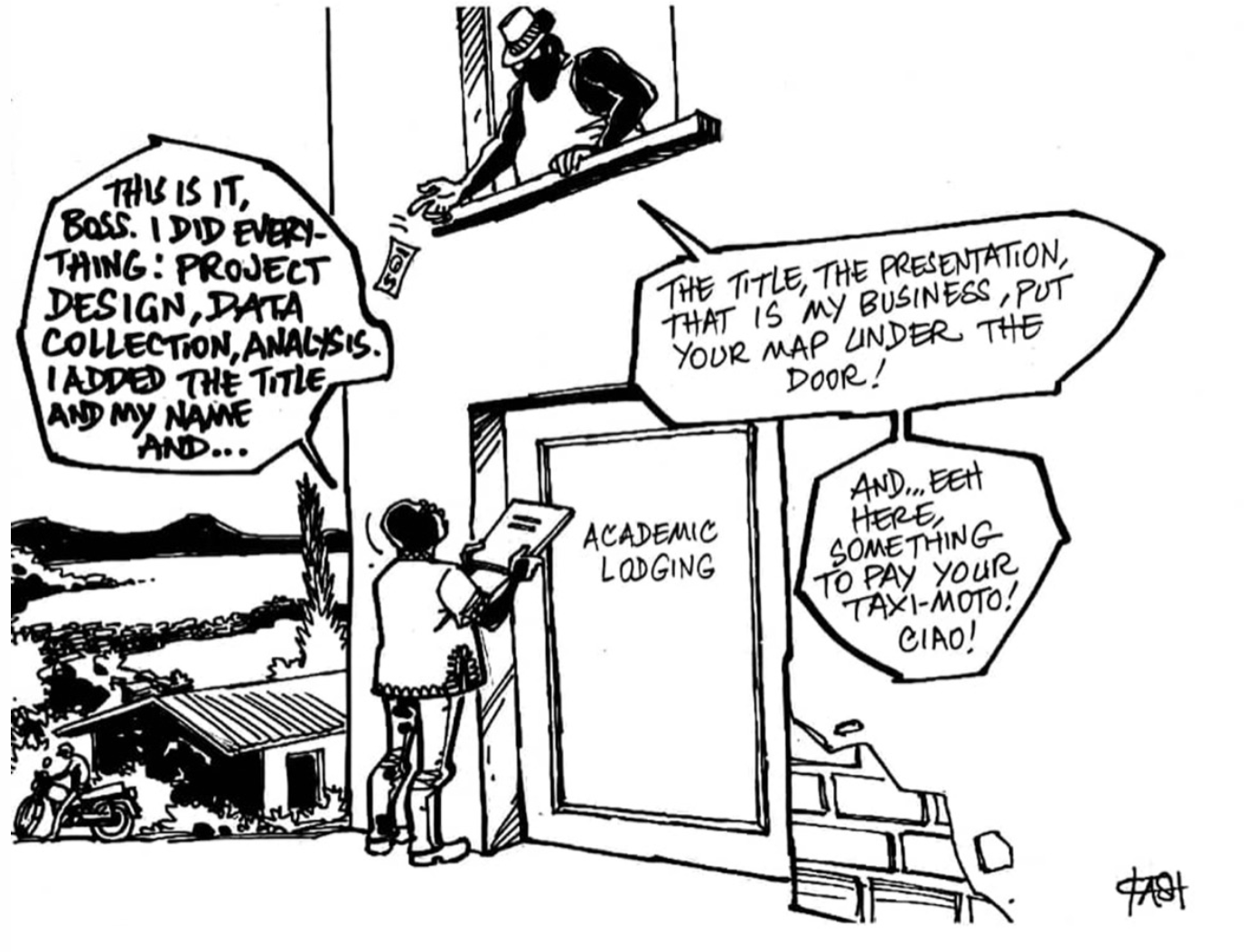North-South Power Differentials and Competition in the Research Business
North-South Power Differentials and Competition in the Research Business
Collaborative research is committed to a division of labour. To summarise, two different blocks emerge from the power relationships that characterise the production of knowledge. The first block includes (i) the “donor” who provides the research funding and determines the conditions on how to get access to it and what should be the deliverables and their format; (ii) universities and/or researchers from the Global North; and, increasingly, (iii) NGOs involved in action research in support of their interventions. The second block, which is more heterogenous, is composed of (i) researchers employed by universities and aspiring to academic careers; (ii) “jobber researchers”, who do research mainly as a means of survival; and (iii) private or university-affiliated research institutions. The role of this block is generally limited to the execution of research activities, imposed by and based on the instructions from researchers or donors in the first block. The actors in the first block have access to research funding and usually have full control over the research process. They determine the code of conduct and the terms of reference and try to ensure that a minimum of the research objectives is appropriated by recruited research assistants through short-term training programmes.

